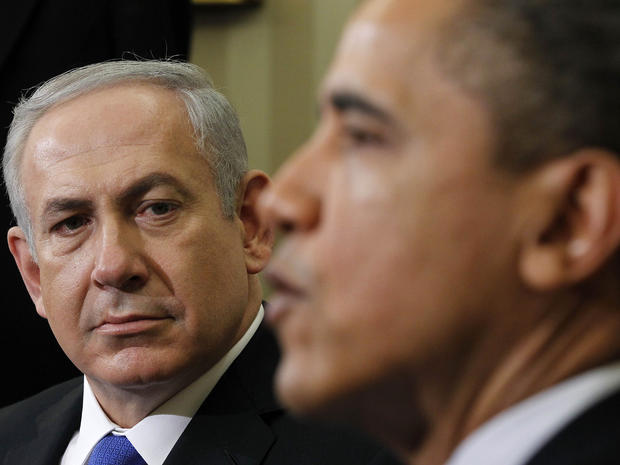Israel, U.S. play diplomatic chicken over Iran
(CBS News) LONDON - There is a dangerous game of diplomatic chicken going on between Washington, Jerusalem and Tehran - and it's all being played out around the U.S. presidential election.
For Israel, it's a question of leverage. Prime Minister Benjamin Netanyahu's government feels it can exert more influence on U.S. policy now, before November, than it will after the election - particularly if President Obama is re-elected. By contrast, just about the last thing the Obama administration wants in the run-up to the vote is to become involved in another foreign conflict.
A variation on the leverage argument suggests Israel thinks it can get more support out of Washington now because there will be some pressure on Mr. Obama to match the support for Israel already expressed by Republican presidential candidate Mitt Romney.
Israel claims U.S. has new, worrying intel on Iran
Iran claims successful test of upgraded missile
Israel unconvinced as U.S. urges patience on Iran
Washington is arguing for more time to let stricter sanctions against Iran bite. Israel on the other hand has repeatedly said it sees no evidence that sanctions have had any constraining effect on Iran's nuclear program.
An Israeli cabinet minister is now quoted as saying a war with Iran would last one month and result in 500 Israeli casualties. The source of his calculations is unclear, but the effort to put a lid - real or imaginary - on the consequences of any Israeli action is another sign of the nervousness the government senses among Israeli citizens.
Netanyahu's argument is that a nuclear-capable Iran is more dangerous to Israel in the long term than a conflict would be now.
U.S. Secretary of Defense Leon Panetta says he does not think Israel has made a decision yet on whether to attack. That may be diplomatic code for - "don't do it."

